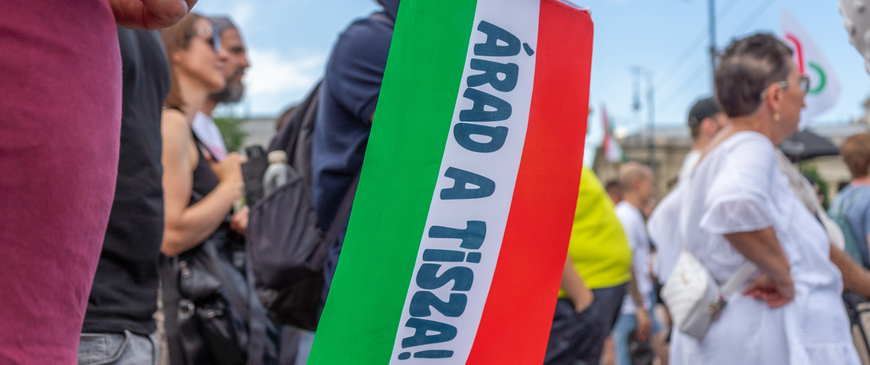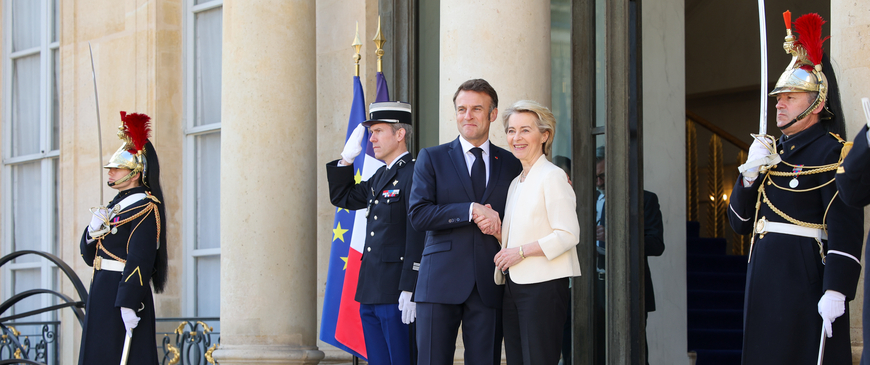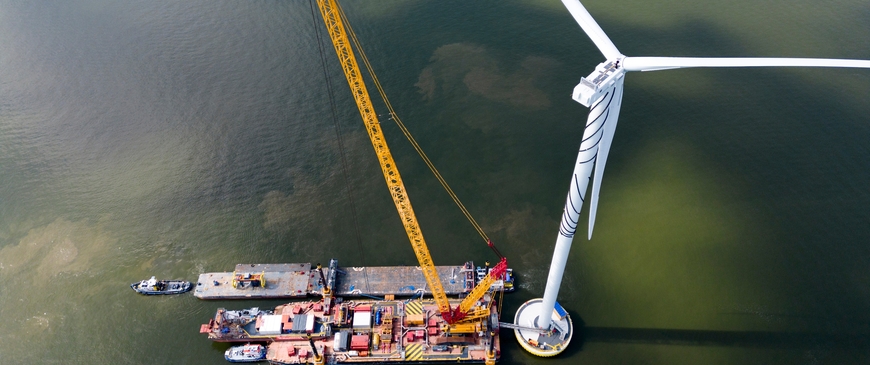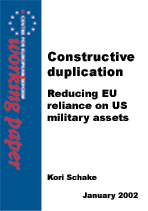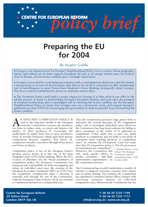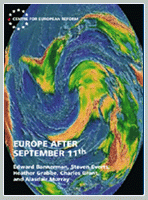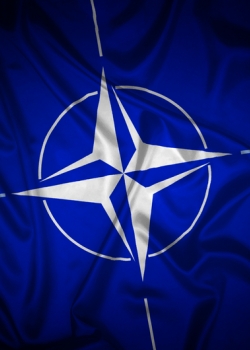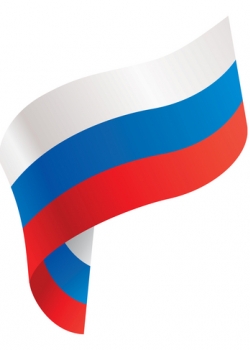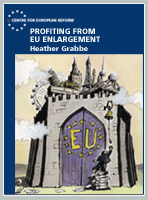Research
Breaking the EU's competition monopoly
01 February 2002
As the EU's competition chief, Mario Monti can make or break the world's biggest companies. The exercise of his wide-ranging powers is always controversial. Last summer, he blocked the planned 50 billion euro GE-Honeywell merger.
The long road to Doha
01 February 2002
The launch of a new round of multilateral trade negotiations by the World Trade Organisation (WTO) at Doha was not only a major accomplishment, it was a case of snatching victory from the jaws of defeat. As recently as six months ago, few would have predicted that the world's trading...
Europe must get on-message
01 February 2002
The EU spends 100 million euro each year on its communications budget, yet is demonstrably failing to 'connect' with Europe's 380 million citizens. Recent polls show that less than half of the EU's voters feel that membership of the 15-state club is a 'good thing',while turnout in European Parliament elections...
The future of EU competition policy
01 February 2002
This report calls for a radical rethink of how competition policy is run. The author argues for a new 'European Competition Agency' to take the politics out of merger and anti-trust investigations.
Issue 22 - 2002
25 January 2002
- Breaking the EU's competition monopoly, Edward Bannerman
- The long road to Doha , Richard Cunningham and Peter Lichtenbaum
- Europe must get on-message , Gareth Harding
Constructive duplication: Reducing EU reliance on US military assets
04 January 2002
In 'Constructive duplication', Kori Schake asserts that the Bush administration has taken a positive approach to the European Union's attempts to develop a military capability.
Preparing the EU for 2004
07 December 2001
The debate about the future of Europe is supposed to consider how the Union will function after enlargement. In practice, the agenda set at Laeken addresses longstanding institutional problems, but does not pay sufficient attention to the qualitative changes that enlargement will bring.
Europe after September 11th
07 December 2001
This report argues that many good things have come out of the crisis, so far. The US is re-engaging with the world. The European Union has accelerated its plans to integrate in the fields of external and internal security.
NATO's big bang
03 December 2001
In 2002 NATO has a rare opportunity to enhance stability in Eastern Europe and build a new relationship with Russia. At the Prague summit in November, the alliance should offer membership to seven countries - Bulgaria, Estonia, Latvia, Lithuania, Romania, Slovakia and Slovenia.
Such a 'Big Bang' would consolidate pro-western democratic...
Such a 'Big Bang' would consolidate pro-western democratic...
Time to abolish the EU's rotating presidency
03 December 2001
The EU performance in foreign policy in the aftermath of September 11th has been underwhelming. European leaders have maintained unity on the substance of policy - a major step forward compared with the situation a decade ago.
The euro comes of age
03 December 2001
A dozen years after the Delors Committee produced a plan for Economic and Monetary Union, the euro finally becomes a reality for 300 million Europeans this January.
A focused campaign not a crusade
01 October 2001
As America comes to terms with the massive terrorist attacks on September 11, and as it frames and implements its response, the key question for Europe is: what should its role be?
US, EU and Russia: A new order?
01 October 2001
In the aftermath of September 11th's horrific events, the world has focused on America's diplomatic and military response. Some of the security issues that commentators were worrying about before the terrorist attacks - such as missile defence, the Balkans and the future of NATO - have left the headlines.
Europe must tackle asylum
01 October 2001
Television images of migrants walking unabashed into the Channel Tunnel are a stark reminder of the fact that Britain is no longer an island.
Issue 20 - 2001
28 September 2001
- A focused campaign not a crusade, By Steven Everts
- US, EU and Russia: A new order?, Charles Grant
- Europe must tackle asylum, Ben Hall
Policing global competition
01 August 2001
The fall-out from the European Commission's decision to veto the proposed $42 billion merger between General Electric and Honeywell shows how competition policy is becoming politicised.
France, Germany and "hard-core" Europe
01 August 2001
In Paris, thinking on the future of the EU tends to focus on two French worries. One is the decline of the Franco-German relationship, and the consequent threat to French influence.
Speeding up European justice
01 August 2001
The European Union's legal system is one of the most significant contributors to European cohesion, prosperity and peace; yet it is also one of the Union's least recognised strengths.
Issue 19 - 2001
27 July 2001
- Policing global competition, Edward Bannerman
- France, Germany and "hard-core" Europe, Charles Grant
- Speeding up European justice, Matthew Heim
Profiting from EU enlargement
01 June 2001
Heather Grabbe weights up the risks of enlargement against the extra trade, investment and stability that enlargement will provide and argues that the price for the existing members will be small.

